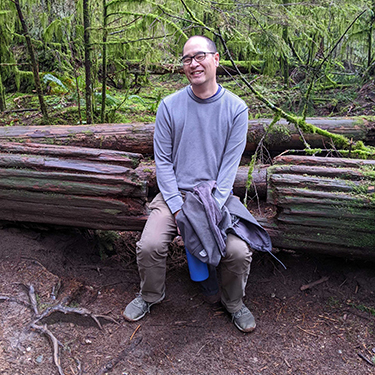Dennis Lee

How I got here:
I joined the Humane Genetics team in the midst of the pandemic in the summer of 2020 after graduating from Clemson University with a PhD in Engineering and Science Education. My thesis focused on how undergraduate students know what they know and why they believe it. I found that the way knowledge construction is discussed affects who students believe can construct knowledge, and how students approach knowledge construction in classrooms. Before I was a science education researcher, I was a molecular biology researcher, studying non-coding RNAs in bacteria while earning BAs in Bacteriology and Zoology, and a MS in Bacteriology from the University of Wisconsin-Madison. During my studies, I became interested in teaching, so I decided to teach biology for Tri-County Technical College in South Carolina. During my 6 years as an instructor and administrator at Tri-County, I became interested in improving science education, which spurred my re-entry into academia as a PhD student (even though my wife thought I was crazy). But I followed my passion, and I am so happy that I took the plunge.
When I graduated from Clemson University, I was on the lookout for a way to make my very theoretical work (seriously, who thinks about how people think about knowing? Me. I do.) into something that is more practical and useful. I came across Brian Donovan’s work and found a great way to transition that theoretical work into something more concrete. I feel that applying how students know things to how they reason about race is an excellent way to connect my knowledge of theory to something that can substantively affect society. This work has helped me to see the broad connections between science and society, and the importance of teaching science responsibly.
How my identity intersects with my work:
I interpret my work through my lived experiences as a Chinese American male. The time I spent in the US and China as a child afforded me the opportunity to navigate the language and culture of both places, mixing and forming the individual I am today. These multicultural experiences have instilled in me a pluralistic view: that mixing cultures and languages, rather than partitioning them, makes me the best person that I can be. This pluralistic view has influenced the way that I approach my research. I believe that implementing a diverse set of methodological and theoretical approaches leads me to interpretations of the world that more accurately represent social reality.
What I do when working:
As a Research Scientist, I work on the Humane Genetics suite of projects. I am involved in implementing and managing our research plans, curriculum development, and teacher professional learning. I also think about how Humane Genetics can branch out and develop new project ideas to continue growing Humane Genetics.
Other work I’m interested in:
Other than Humane Genetics, I am interested in student knowledge construction, student agency towards constructing knowledge, how students think about scientific error, and how students reason about socio scientific issues.
Research Stats:
Learn more here.
What I do with the rest of my life:
I currently spend entirely too much time with my family working from home, but we have lots of fun discovering new series to stream and playing music together. I am an avid disc golfer, and a reluctant runner who needs to exercise to stay healthy. I also assemble and paint wargame miniatures so that I can play with them along with other grown adults. We love rolling dice and making pew-pew noises while we live out our fantasies on the wargaming table.
Stats (as of 7/25/2022):
For one of my miniatures games (called Infinity), I own 67 painted vs. 283 unpainted miniatures. I have attended 18 gaming conventions attended. Highest rank as a junior tennis player in Wisconsin: 9. I own 4 cats, but the maximum number of cats living at my house at one time was once 9.